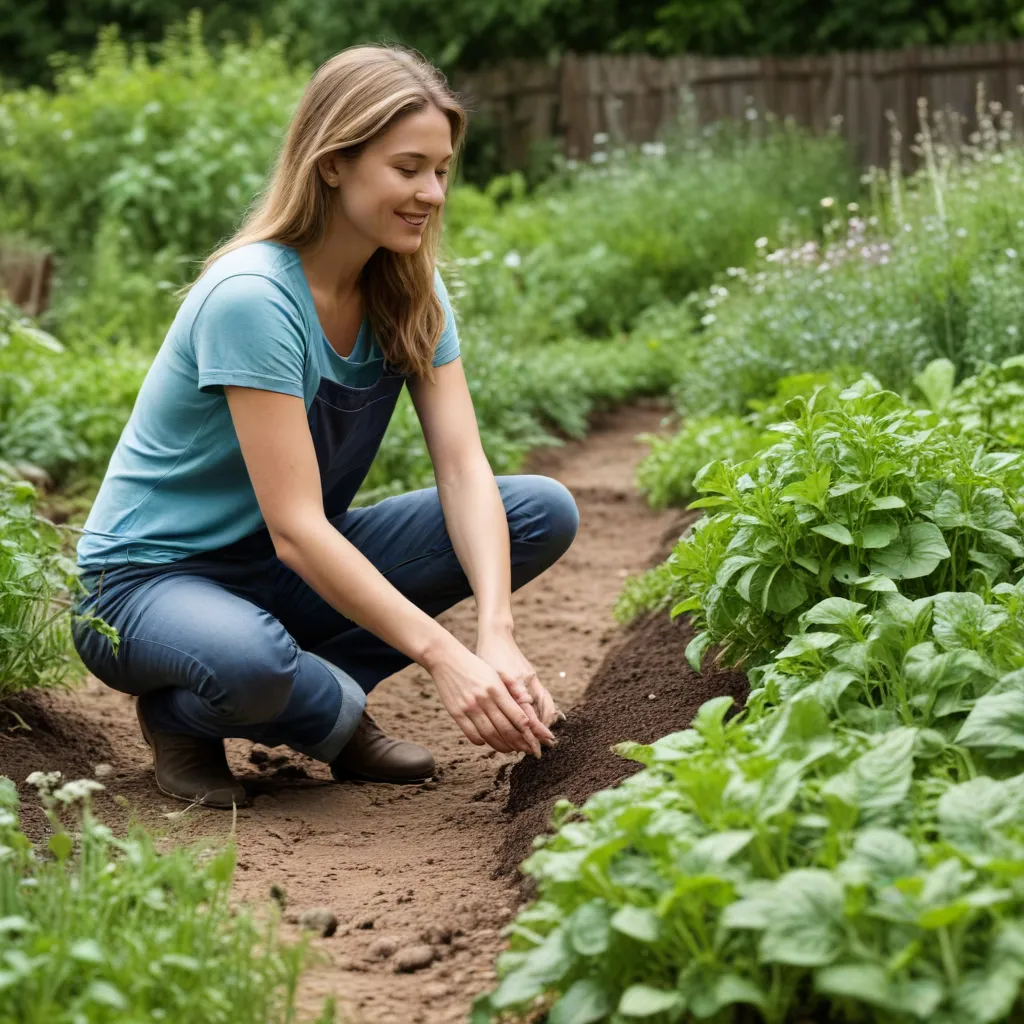
Cultivating Calm: The Therapeutic Power of Tending to Our Organic Gardens
In a world that often moves at a breakneck pace, the simple act of gardening can be a powerful antidote to the stresses and anxieties of modern life. For those who have discovered the restorative benefits of tending to an organic garden, the therapeutic value of this humble pursuit is immeasurable. Whether you’re nurturing a lush vegetable patch, curating a sensory-rich flower border, or cultivating a diverse array of drought-tolerant plants, the process of gardening can unlock a profound sense of calm and well-being.
The Benefits of Tending to Our Gardens
At the heart of this transformative experience lies the innate human need to connect with the natural world. As we immerse ourselves in the rhythm and cycles of the garden, we tap into a primal sense of belonging that can have a remarkably soothing effect on our minds and bodies. The very act of composting, mulching, and gently coaxing life from the soil can be a meditative practice, allowing us to slow down, focus our attention, and find respite from the constant demands of daily life.
Studies have shown that engaging in gardening activities can significantly reduce levels of stress, anxiety, and depression, while also improving overall mood and cognitive function. The physical act of gardening, with its gentle movements and connection to the earth, triggers the release of endorphins – the body’s natural feel-good chemicals – which can help to alleviate symptoms of mental health challenges. For many, the garden becomes a sanctuary, a place to retreat and recharge, free from the pressures and distractions of the outside world.
The Principles of Organic Gardening
Organic gardening, with its emphasis on sustainability, ecological harmony, and holistic approaches, offers a particularly nurturing framework for this therapeutic experience. By embracing principles like soil health, biodiversity, and natural pest management, we cultivate an environment that not only nourishes our plants but also our own well-being.
“Organic gardening is more than just a method of growing plants,” explains Wendy Siu Chew Lee, an avid gardener from Sydney, Australia. “It’s a way of life that connects us to the rhythms of nature and the interdependence of all living things. When we tend to our gardens with care and intention, we’re not just growing food or flowers – we’re nurturing our own sense of place and purpose.”
The Calming Influence of Gardening
The meditative nature of organic gardening is a key component of its restorative power. As we immerse ourselves in the task at hand, whether it’s deadheading perennials, pruning shrubs, or planting bulbs, we’re drawn into a state of focused attention and present-moment awareness. This mindfulness, coupled with the soothing sensory experiences of gardening – the earthy scent of freshly turned soil, the gentle rustling of leaves, the vibrant colors of blooming flowers – can induce a profound sense of calm and relaxation.
“When I’m in my garden, it’s as if the rest of the world fades away,” reflects Jackie O., a passionate gardener and writer. “There’s a rhythm and routine to the work that I find incredibly grounding. I can lose myself in the simple tasks of weeding, watering, and tending to my plants, and it’s in those moments that I feel the most at peace.”
The Restorative Power of Organic Spaces
The therapeutic value of organic gardening extends beyond the act of cultivation itself, encompassing the restorative power of the cultivated spaces we create. By designing our gardens with intention, incorporating elements that speak to our senses and our souls, we can craft environments that nourish our well-being on multiple levels.
“Biophilic design principles, which emphasize the innate human affinity for nature, are a crucial component of therapeutic landscaping,” explains landscape designer Mark Gregory. “By incorporating features like water features, meandering pathways, and diverse plantings, we can create gardens that not only delight the eye but also soothe the mind and spirit.”
These carefully curated organic spaces, with their harmonious blend of form and function, can serve as sanctuaries where we can find refuge, rejuvenation, and a deeper connection to the natural world.
The Holistic Wellness of Organic Gardening
The benefits of organic gardening extend beyond the realms of mental and emotional well-being, also encompassing the realms of physical health and nutritional wellness. By growing our own organic produce, we gain access to the freshest, most nutrient-dense ingredients – a boon for our overall health and well-being.
“There’s something incredibly satisfying about harvesting a ripe tomato or a crisp head of lettuce from my own garden,” says Wendy. “I know exactly where my food has come from, and I can trust that it’s been grown without the use of harmful pesticides or synthetic fertilizers. It’s a level of food security and control that I find very empowering.”
Beyond the tangible nourishment provided by homegrown organic produce, the act of cultivating our own gardens can also foster a deeper sense of wholistic wellness. The physical activity involved in gardening, coupled with the mindfulness and stress reduction it engenders, can contribute to a more balanced and harmonious relationship between our minds, bodies, and the natural world.
As we continue to navigate the complexities and pressures of modern life, the therapeutic power of organic gardening stands as a powerful antidote – a means of cultivating calm, restoring balance, and rediscovering our innate connection to the earth. Whether you’re an experienced gardener or just beginning to explore the joys of tending to the soil, the transformative benefits of this humble pursuit are there for the taking. So, let us heed the call of our gardens, and embrace the restorative gifts they have to offer.
